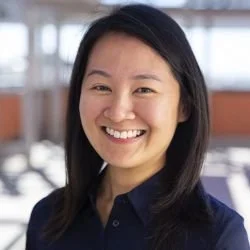When it comes to studying conflict, there is obvious data to examine: spending on arms, the number of people killed or injured, and the amount of land won or lost. What's harder to track are the indirect effects of conflict, the ways it produces deaths over time, or its impacts on public health. Researchers are trying to find ways to account for the sometimes less obvious impacts of conflict, and that's the focus of this episode of Stats and Stories with guest Xiao Hui Tai.
Each election cycle experts appear in the news talking about polling data. Many of these experts are political scientists and are often the only contact audiences may have with political scientists. While polling research is important to the field, there are other kinds of quantitative research in political science that can get overlooked. We learned about some of them today on this episode of Stats and Stories with guest Kevin Reuning.
The issue of voter fraud has taken up increasing amounts of the public’s imagination since the 2020 election. Spurred in part by claims from former U. S. President Donald Trump that the election was stolen from him. On their face, some of the claims of fraud seem irrational. Others however, require a bit of statistical investigation before they can be fully debunked. That’s the focus of this episode of Stats+Stories with guest Dr. David McCune.
With the 2020 U-S presidential election all but upon us, media are rife with prognostications about which way voters are going to swing. Will reliably red states stay red or will voters produce a blue wave that crashes across the country? Will economic uncertainty trump concerns over COVID 19? Is political polarization really as set-in-stone as some have suggested? Understanding voter behavior is a focus of this episode of Stats and Stories where we explore the statistics behind the stories and the stories behind the statistics with guest Andrew Gelman.
Robert Santos is vice president & chief methodologist at the Urban Institute as well as President-Elect of American Statistical Association. He has over 40 years of experience designing research and evaluation studies as well as sample surveys. His expertise includes quantitative and qualitative research design, sampling, survey operations, and statistical analysis; specialty areas include Hispanics, blacks, undocumented immigrants, and other disadvantaged populations.
Robert Santos is vice president & chief methodologist at the Urban Institute as well as President-Elect of American Statistical Association. He has over 40 years of experience designing research and evaluation studies as well as sample surveys. His expertise includes quantitative and qualitative research design, sampling, survey operations, and statistical analysis; specialty areas include Hispanics, blacks, undocumented immigrants, and other disadvantaged populations.
Simon Rogers is an award-winning data journalist, writer and speaker. Author of ‘Facts are Sacred‘, published by Faber & Faber in the UK, China and South Korea. He has also written a range of infographics for children books from Candlewick. Data editor on the News Lab team at Google, based in San Francisco, he is director of the Data Journalism Awards and teaches Data Journalism at Medill-Northwestern University in San Francisco and has taught at U Cal Berkeley Journalism school.
Simon Rogers is an award-winning data journalist, writer and speaker. Author of ‘Facts are Sacred‘, published by Faber & Faber in the UK, China and South Korea. He has also written a range of infographics for children books from Candlewick. Data editor on the News Lab team at Google, based in San Francisco, he is director of the Data Journalism Awards and teaches Data Journalism at Medill-Northwestern University in San Francisco and has taught at U Cal Berkeley Journalism school.
Kelly McConville is a survey statistician who develops estimation techniques that combine complex survey data with big data sources. Her work is used to estimate official statistics, related to canopy cover or occupational statistics, or to assess the impact of voter ID laws. She also enjoys teaching her students how to learn from data and introducing them to R (an open source statistical software program). She also involves her students in her work as the co-chair of two national programs: the Undergraduate Statistics Project Competition and the Electronic Undergraduate Statistics Research Conference.







